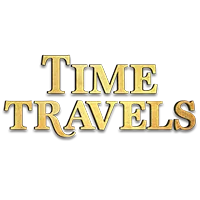Reviving the Voices of the Past: Rediscovered Aboriginal Languages! | Lost & Found | Time Travels
4K views
Apr 4, 2025
Join host and illustrator Warren Brown as he explores the State Library of New South Wales and uncovers forgotten indigenous languages that have been preserved in rare books and manuscripts for centuries. This video showcases the invaluable contributions of libraries and archives in preserving cultural heritage, and the importance of ongoing efforts to reclaim and revitalize endangered languages.
View Video Transcript
0:00
The State Library's collections are worth $2.2 billion
0:05
but in truth, there are some things here that you could never put a value on
0:10
In 1936, a piece of Australia was lost forever when the last Tasmanian tiger died in Hobart Zoo
0:19
But that's not the only extinction to have happened since white settlement
0:23
As well as who knows how many plants and animals, and animals, hundreds of Aboriginal languages are either extinct or critically endangered
0:32
But as you'll see, unlike the Tasmanian tiger, sometimes words can be brought back to life
0:38
Before the arrival of Europeans
0:53
there were more than 250 Aboriginal languages spoken in Australia. Each tribe had its own voice
1:06
through which history, law and knowledge were passed down. So, Ron, why is it that so many languages just begin to fade away
1:19
Yeah. Well, it's the story of colonialism, really, isn't it? I mean, Aboriginal people were being encouraged
1:24
to accept the European lifestyle, which includes, of course, you know, being rewarded for not speaking your language
1:31
being rewarded for not practising your culture being rewarded for going to school and going to church At the State Library of New South Wales
1:42
Ronald Briggs is on a quest to find Indigenous voices that have disappeared
1:47
A lot of the time you'll be taken down a dead end on a wild goose chase even
1:53
But sometimes you'll find the exact nugget of information that you've been searching for
1:57
Australia's indigenous people don't have a written language, but Europeans do. So Ronald started prospecting, sifting through the records of colonial Australia
2:11
until one day he struck gold. He discovered that in the 1890s, the Anthropological Society of Australasia
2:24
conducted a kind of census of Aboriginal place names. A letter was dispatched to police stations around the country
2:38
It requested that constables talk to local Aborigines to find out and record the meanings of place names
2:47
It wasn't compulsory. They didn't have to fill it in and send it back, but surprisingly, most of them did
2:51
So what we're left with is a rather complete record of language
2:55
and place names throughout Australia. Just looking at these ones here, it says Boondi
3:03
and then the meaning of it is it's a noise made by a sea wave
3:07
now called Bondi. And the one below it says Kuja and it means bad smell caused by the decay of a large quantity of seaweed and it now means Kudji It great isn it Who would have thought that You wouldn think of Kudji as being the place of bad smells
3:20
No, no, you wouldn't. You don't see many real estate agents with that up there. No, that's right
3:26
So Ron, these documents intended to decipher place names seem to have unlocked the language
3:32
Would that be fair to say? Yeah, yeah. So apart from giving the particular area a name, you're actually learning the meaning of that word as well
3:44
But the gold nuggets of information in the place name lists are just the start of Ronald's word mining operation
3:52
Hidden away within the New South Wales State Library's vast collection are potentially hundreds of records of lost Aboriginal words
4:01
Have a look at this. This is a bound volume of pamphlets from the library's early days
4:06
and when you open it up, it's pretty standard stuff. But hidden within this book, let me show
4:11
you, are handwritten notes that say fragments of Camilleroy grammar. That's extraordinarily rare
4:20
You know, if you didn't stumble upon something like this, you'd have no idea it was here
4:24
And within this library, there are seven floors underground, just like this one. So
4:28
They're at kilometres of shelving. So who knows how many linguistic gems there could be in here
4:37
Now that the words are flowing, Ronald is keen to share them with the people who need them most
4:43
So we invited a group of Indigenous language researchers to the library This is the first time they laid eyes on words that have been lost for generations Younger sister no word
4:58
But they've got elder sister, one word there. Whatever it is. Mar
5:02
Marana. Yeah. So there's narang, obviously. Which means little. Little, yeah. Oh, look, it's Bundaberg
5:11
Oh, yeah, and Miloquin. It's a man's beard through the eye. That's fantastic to know
5:19
Did you know that one? It's exhilarating because you know that it's not going to be found anywhere else
5:24
There is words galore here. And there's how many pages? 400 pages
5:31
Of possible language evidence here. Aboriginal culture is still around, still alive and flourishing today
5:38
And we're glad that a few people took the time to record this particular linguistic part of our heritage
5:50
You see, places like this are not just buildings full of documents
5:56
They're keepers of something much more precious, the lives and stories of people
6:02
whether it's an Italian monk or a renegade convict doctor or Frankenstein's creator
6:07
The library holds their time in history and waits for us to discover them
#Anthropology
#education
#History


